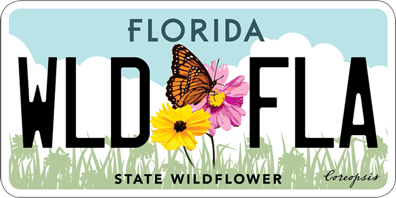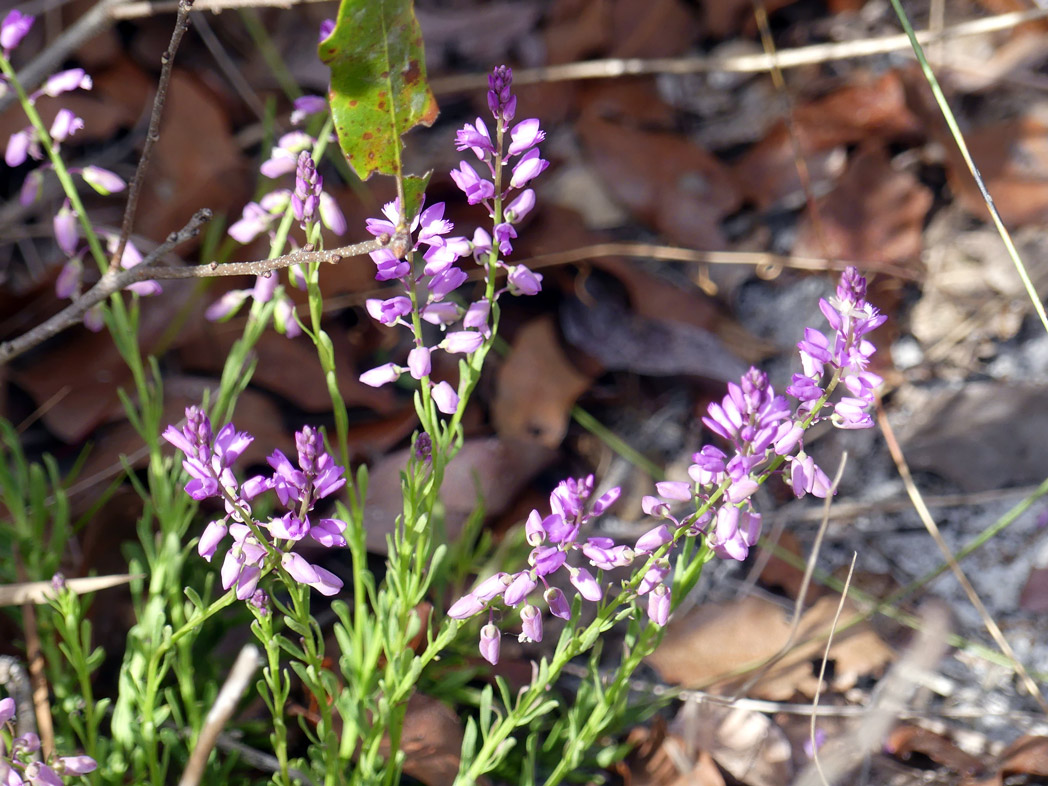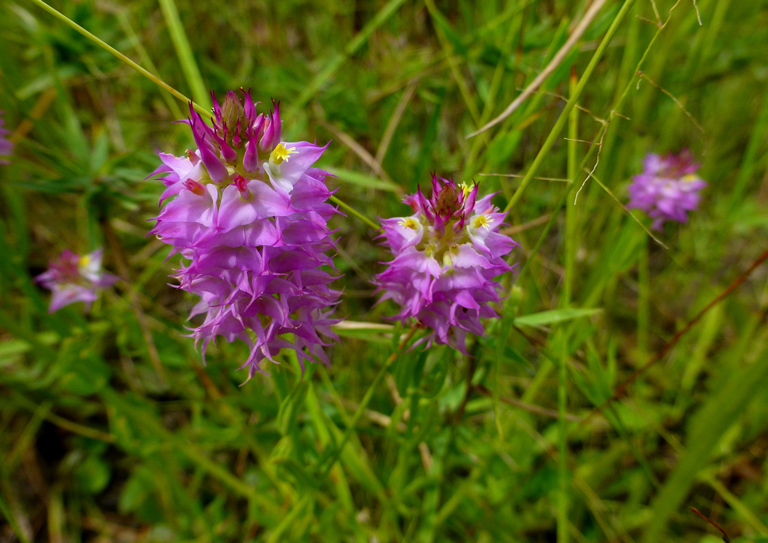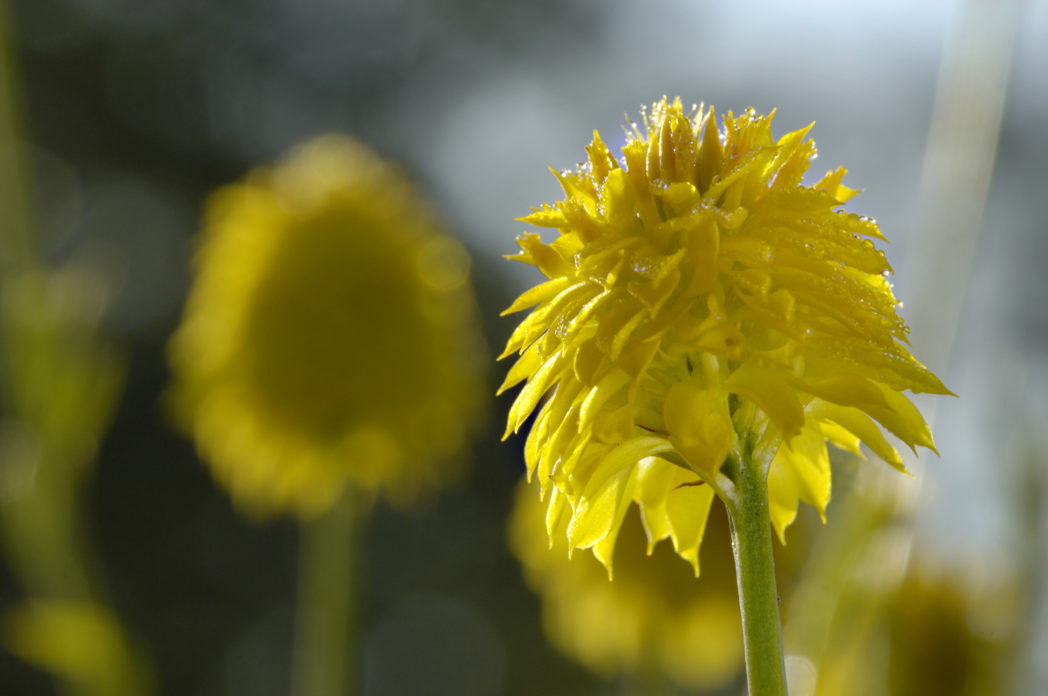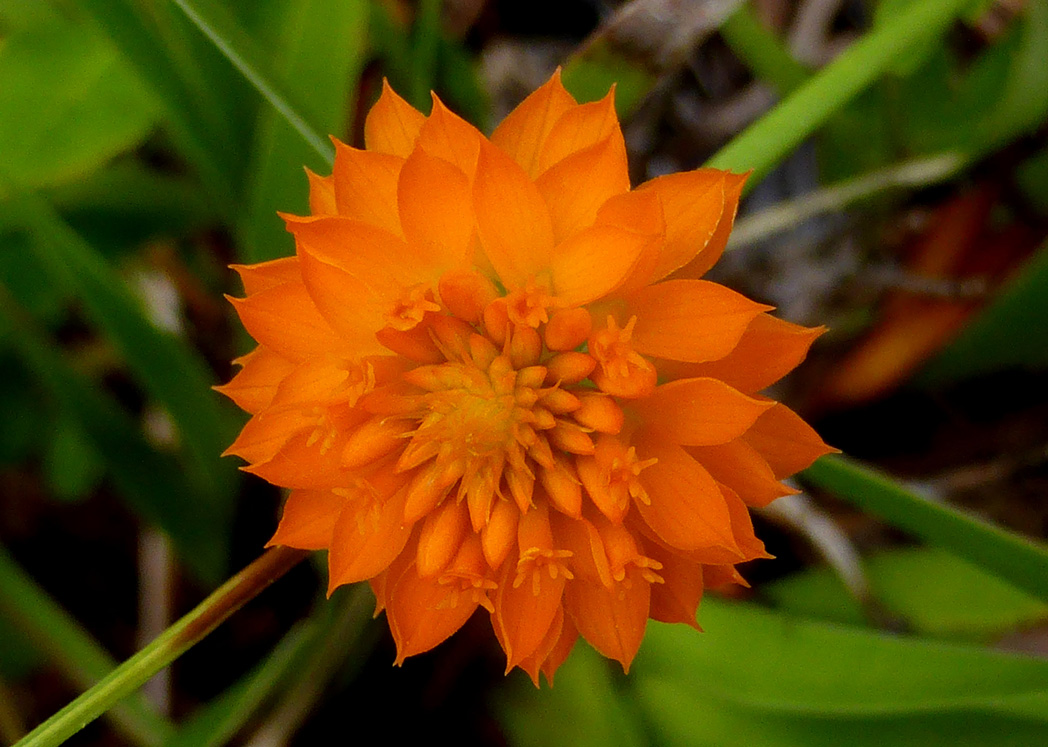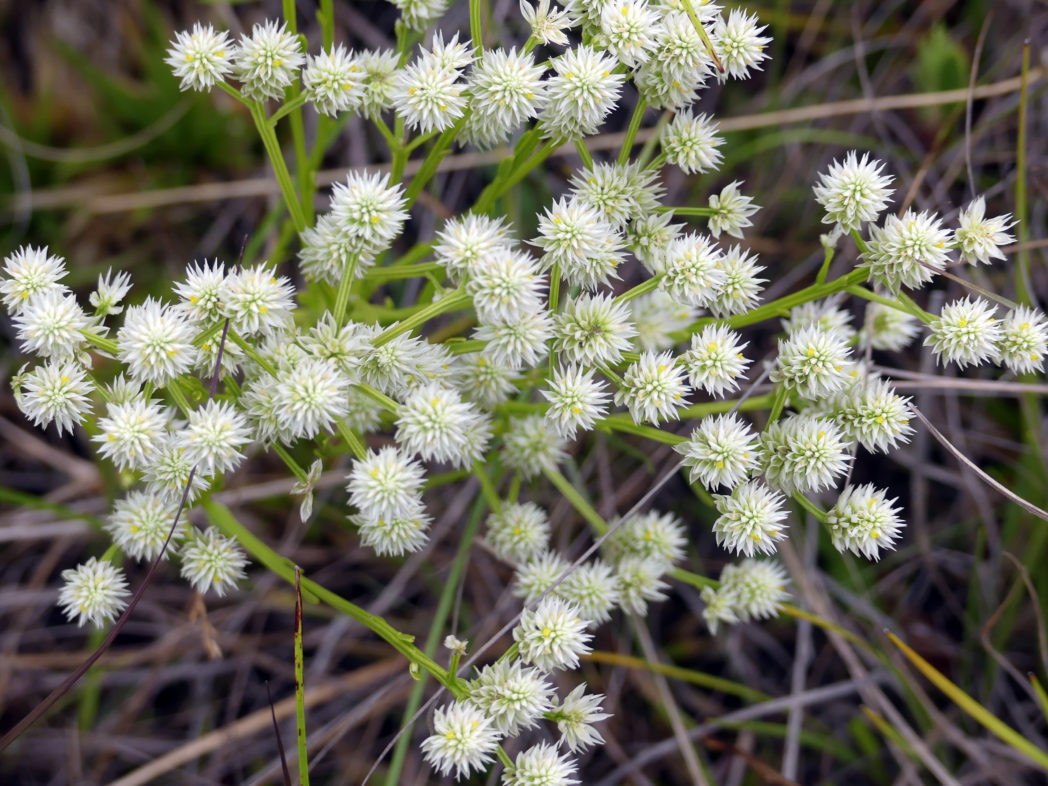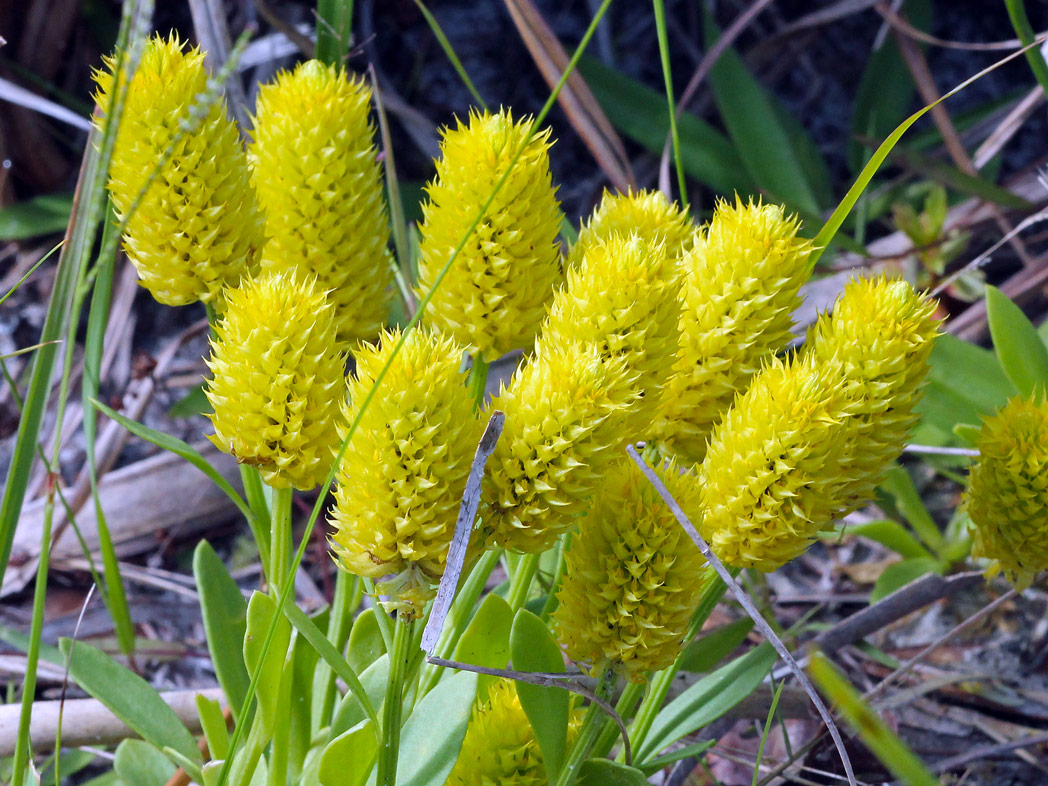Lewton’s milkwort
Pictured above: Lewton’s milkwort (Senega lewtonii) by Craig Mazer. Click on terms for botanical definitions. View post as a PDF.
Lewton’s milkwort (Senega lewtonii) is an endangered wildflower endemic to only six counties in Central Florida. It occurs in scrub, sandhill and pine barren habitats where maintenance includes a regular fire regime. It blooms in late winter and spring, attracting a variety of pollinators, especially leafcutter bees, hover flies and bee flies.
Lewton’s milkwort produces open-pollinated flowers as well as two types of self-pollinating flowers — one occurs above-ground and the other underground. The open-pollinated (chasmogamous) flowers are the most noticeable. They are small, dark pink and born on loose, many-flowered terminal spikes. These flowers have three pink winglike sepals and three fringed petals. The petals are fused and form a keel. The above-ground self-pollinating (cleistogamous) flowers are tiny, green and occur in the leaf axils. The underground flowers have no pigment and are born on few-flowered racemes. Leaves are small (up to ½-inch long), linear to spatulate in shape, and succulent. They are alternately arranged. Fruits are oblong capsules, each containing two seeds. Each seed has a hairlike appendage that attracts ants, which help disperse the seeds. The plant has a long taproot that helps protect it during fire occurrence.
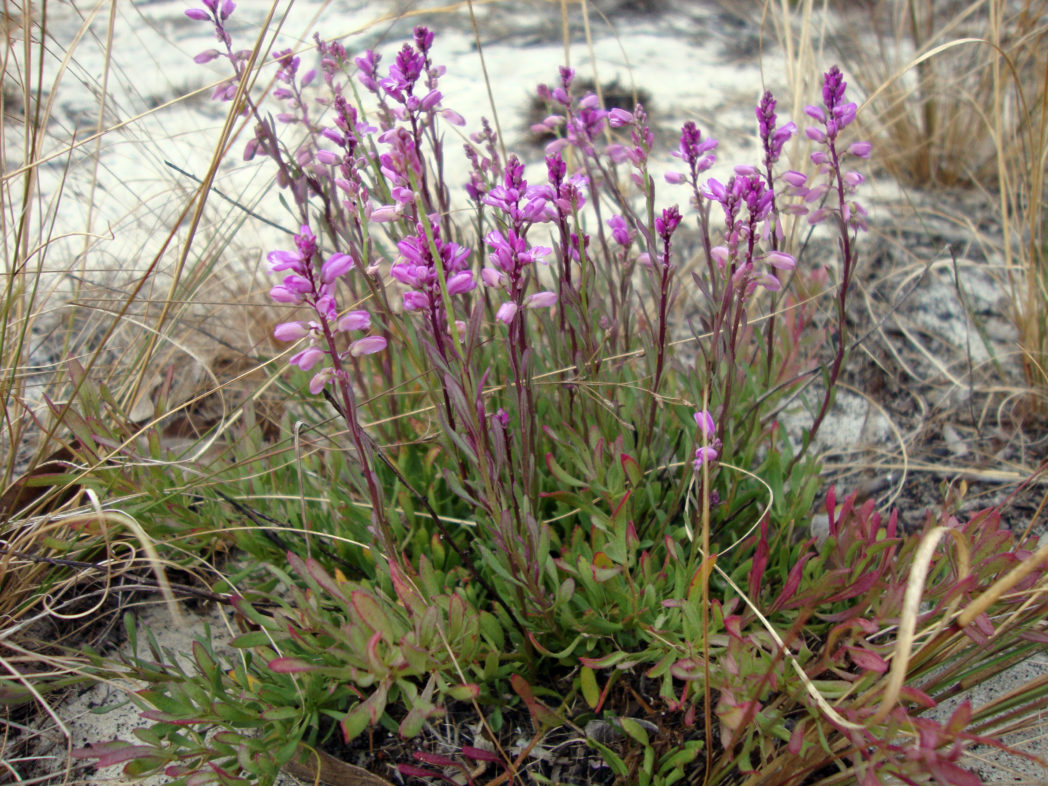
NOTE: Research published in 2023 assigned the New World clade of Polygala to the genus Senega (Pastore et al). This species was previously known as Polygala lewtonii and is likely still listed as such in many online and print resources.
Family: Polygalaceae (Milkwort family)
Native range: Marion, Lake, Polk, Osceola, Brevard and Highlands counties
To see where natural populations of Lewton’s milkwort have been vouchered, visit florida.plantatlas.usf.edu.
Lifespan: Short-lived perennial
Soil: Dry, sandy soils
Exposure: Full sun
Growth habit: up to 12” tall
Lewton’s milkwort is not commercially available. Visit a natural area to see it.
For information on other Senega species, see these resources:
